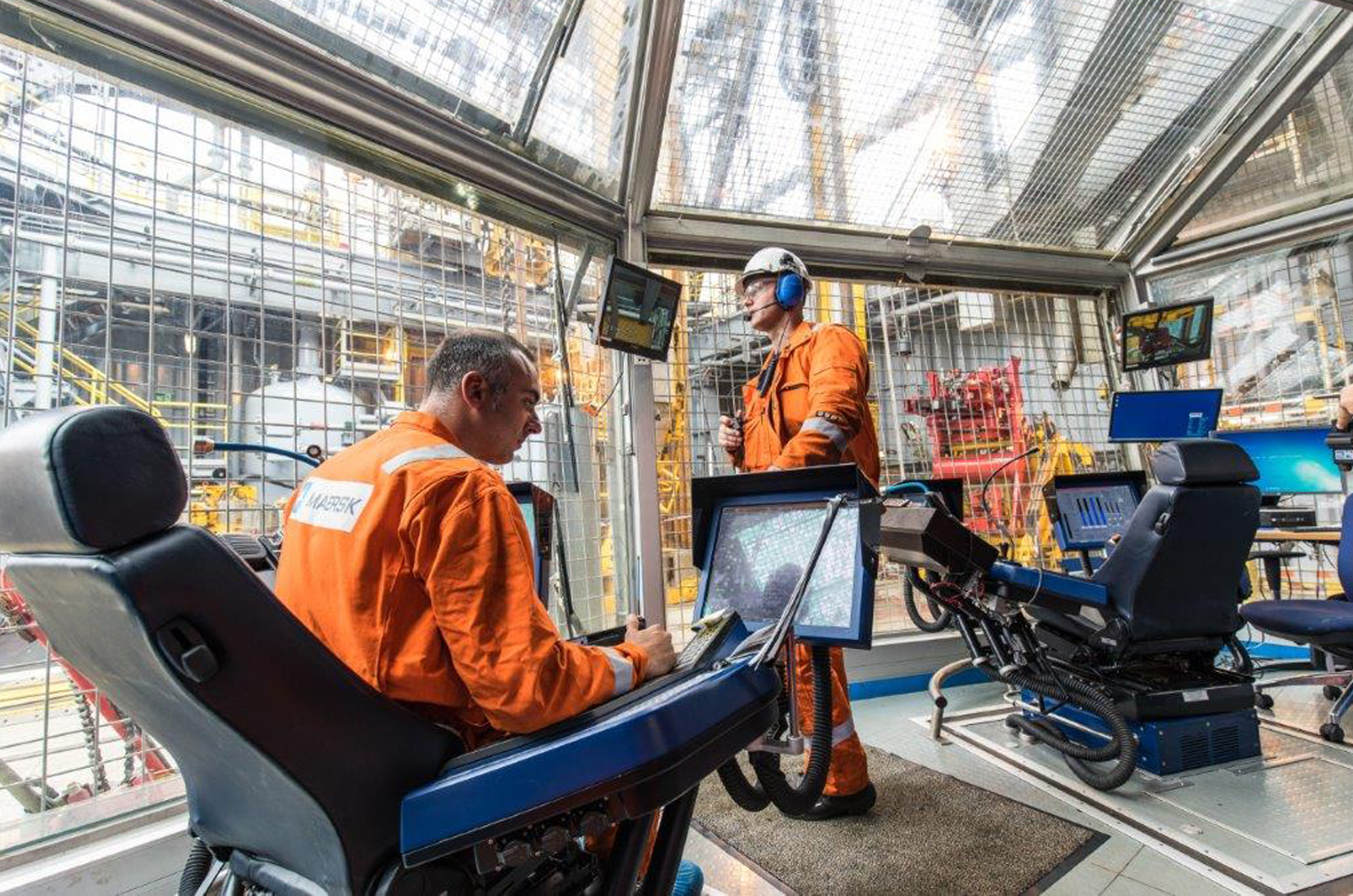Good teams utilise the best
 Photo: Morten Berentsen
Photo: Morten Berentsen
“We’ve been working on the role of suppliers for years,” says Ingvil Tveit Håland, who heads the PSA’s follow-up of these companies – which include fabricators and contractors.
“This was adopted as our main issue in 2021 both to highlight their own responsibilities and to emphasise that this part of the industry needs good operating parameters to work safely.
“That’s important for maintaining and improving the level of safety in the industry. ‘Side by side with the suppliers’ emphasises that the sector has a common responsibility to ensure a strong and viable supplier side.”

Overview
“Meetings with a large number of suppliers have given us a good overview of which parameters are important and how these have changed over time,” explains Tveit Håland.
“We’ve also established what consequences such changes could have – particularly for HSE. That’s valuable in understanding where the problems are at industry level.”
The PSA has also conducted audits focused directly on supplier companies during 2021.
“Such checks are important for ensuring that all the companies play by the same rules,” says Tveit Håland. “That benefits both the supplier sector and the industry as a whole.”
Nonconformities identified by these audits show that excessive pressure on operating parameters can contribute to companies breaching the regulations, she observes.
“A link may exist between nonconformities at suppliers and the parameters set by the operators. That’s something the latter must be aware of.
“While the suppliers have an independent responsibility to comply with the regulations, important conditions for their activities are determined by others.”
Dialogue
“Our 2021 main issue was very well received by the suppliers,” says Aina Eltervåg, the PSA’s contact with these companies. “They’ve used it as an opportunity for dialogue with the other side.
“It’s important for the suppliers to get in gear early with their customers when drawing up contracts. After all, they’re the ones who’re going to do the job.
“They have much experience and expertise, and want to influence both the risk they face themselves and their possible contribution to risk in the overall activity.”
She explains that suppliers want adequate predictability for planning their own staffing. Many face challenges in delivering the right competence and capacity at the right time.

“The parameters set by customers have direct consequences for working conditions at the sharp end. We expect contracts to ensure prudent terms so that suppliers can do the work in a safe way.”
Eltervåg emphasises that operators have in many cases established good collaboration with their suppliers. The latter then become involved early in the planning process and are able to provide input for secure and efficient solutions.
“Both sides can then benefit from each other’s expertise, pull together in the same direction and – most importantly – find that they have something to gain from the collaboration.
“Viable suppliers are a precondition for technological progress. To succeed with that, both customer and supplier must be able to think long-term.”
Attention
Tveit Håland promises that the PSA will be continuing to devote attention to the supplier companies in the time to come.
“We believe we’re also side by side with them when our audits of their work identify regulatory breaches, and we’ll continue to check such aspects as temporary hires and working hours.
“This is about uncovering specific illegalities at individual companies, but it’s equally important to turn the spotlight on the underlying causes.”
She explains that terms set for contractor operations have direct significance for safety. Challenges related to such aspects as planning horizons, capacity and competence affect the whole industry, and the contractors cannot overcome them alone.
“The level of activity in the industry is now shooting up, with pressure growing to secure well-qualified personnel.
“That’s particularly evident among suppliers, and it’s important that we manage to retain expertise in this sector. Their operating parameters therefore play a crucial role.”
Initiative with real effect
The PSA has highlighted the significance of supplier companies for safety in Norway’s petroleum sector. Trade unionist Kine Asper Vistnes believes this 2021 main issue has already had an impact.

“It’s important that interaction between suppliers and operators is on the agenda because the former comprise many players, who’re often at the mercy of customer priorities,” she says.
Vistnes is a senior official in the United Federation of Trade Unions which, as Norway’s largest union in the private sector, has many members at oil-industry suppliers.
Commenting on the PSA’s main issue of “side by side with the suppliers”, she says the union is already seeing more awareness among companies about adopting the necessary protocols for worker participation.
“That’s directly related to PSA audits and the great emphasis among the regulators on such employee involvement. Local employer-union collaboration must function properly and develop further, and the PSA’s influence makes a positive contribution to this.
“The fact that it has been given the authority to supervise temporary hires and equal treatment both on the NCS and at land plants has also created great optimism.”
Supporter
Vistnes emphasises that the United Federation is a strong supporter of the oil industry, and that the high level of expertise among its parties is a precondition for the green shift.
However, the unions have clear expectations that the operator companies and suppliers will succeed in collaborating well in the future by sharing information on good measures which benefit all.
“It’s traditionally been the suppliers who’ve provided the operators with good expertise,” Vistnes points out. “This must be continued with good operating parameters for the supplier sector.
“That’ll allow its members to continue investing in expertise and taking on apprentices. Tomorrow’s industry must be developed from today’s, and predictability is important for that.”
Long-term
The United Federation wants to help ensure good policies for the oil industry, but expects a pay-back in the form of a long-term perspective.
It now sees new issues, with oil and gas prices high and activity rising. “The cyclical nature of the industry is challenging, even if earnings are good for now,” says Vistnes.
“Good HSE work, more permanent jobs and fewer temporary hires will be key issues for the future. Temporary staffing must be utilised in a controlled manner.
“We’ve seen cases of unfortunate solutions in the supplier industry, which have been exposed by the PSA through a couple of audits.”
According to the United Federation, collaboration between employers, unions and government provide the best basis for achieving long-term solutions and a good green transition.
“An even greater commitment to staffing and the right expertise is important for the future,” Vistnes emphasises.
“Collaboration between all sides is always a good basis for achieving positive long-term solutions for HSE work, expertise development and staffing strategies.”
Dialogue article
This article has been taken from our Dialogue journal, which aims to encourage debate on some of the most relevant issues and challenges faced by the industry in the safety area.